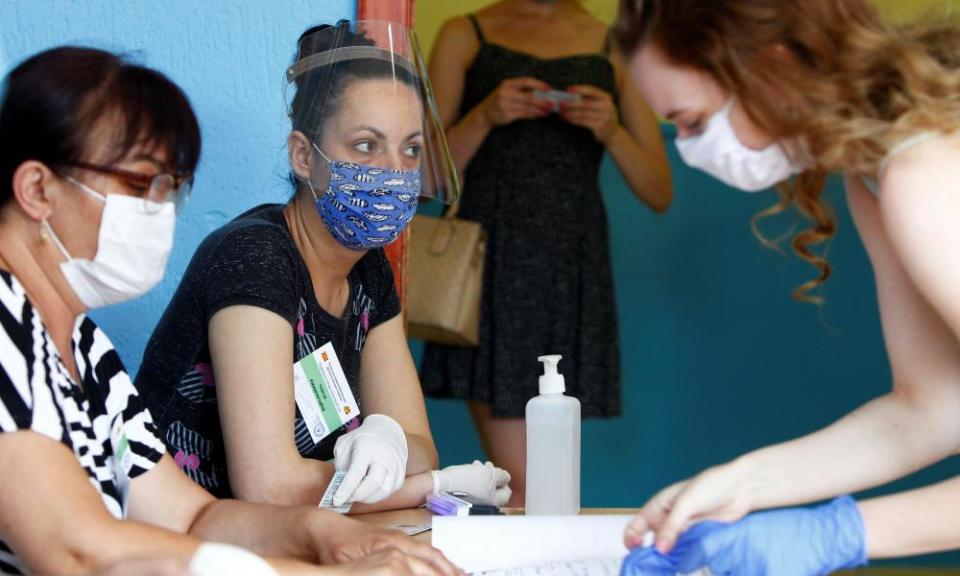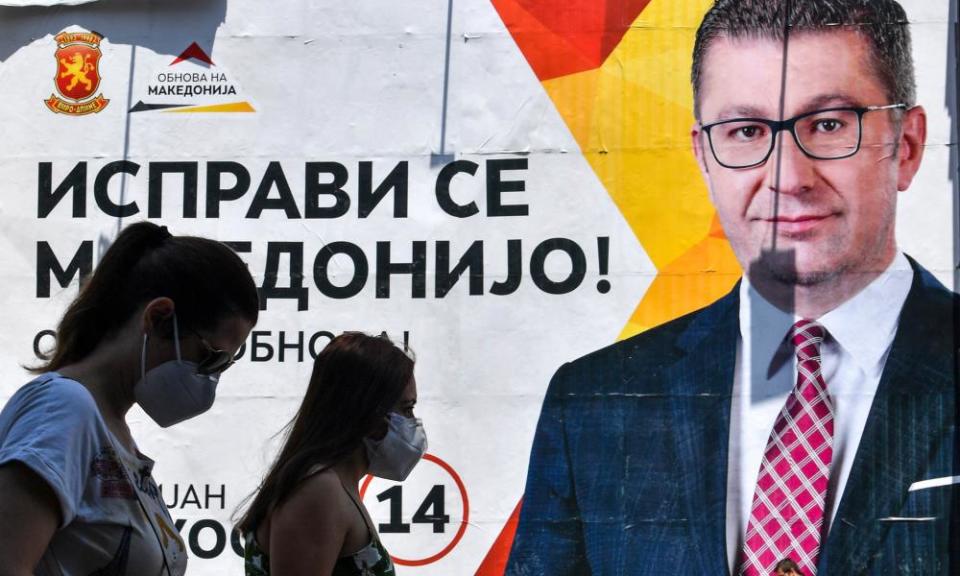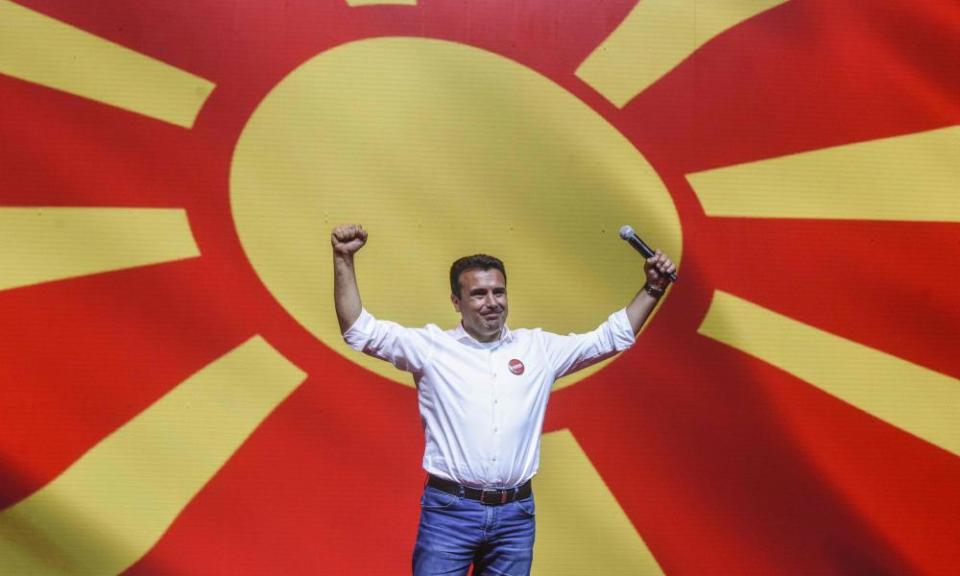Race too close to call as North Macedonia holds first poll since name change

North Macedonians are going to the polls in an election viewed as crucial for the Balkan state’s future after months of political drift exacerbated by voting being postponed by the coronavirus pandemic.
The vote, originally due to be held in April, is the first since the country changed its name from Macedonia in a landmark deal with Greece two years ago. It is hoped the election will end the political uncertainty that has lingered since the European Union’s refusal to set a date for North Macedonia to begin eagerly-awaited accession talks with the bloc.
“We need a government to start those talks,” said Eva Ellereit, resident representative of the Friedrich-Ebert-Stiftung German political foundation in the capital, Skopje.
“This is an important election because it will decide the future of the country. People have the chance to determine whether they want to continue on a course of pro-European reform. The result could be a beacon of hope for democracy in the western Balkans at a time of backlash in parts of the region.”

Polls opened at 7am local time on Wednesday and will close at 9pm, two hours longer than usual because of health protocols. Over 1.8 million people are eligible to vote. All voters must wear masks, briefly removing them for identification purposes, and keep two metres from other people.
Opinion polls show the two main parties, the Social Democratic Union of Macedonia and the conservative populist VMRO-DPMNE, neck and neck with the contest too close to call. Amid an alarming surge in coronavirus cases, the pandemic is expected to erode turnout, as members of the 2-million strong nation’s large European diaspora are unlikely to be able to return to vote.
In another first, however, 700 people ill with Covid-19, or in quarantine and unable to travel to polling stations, were allowed to cast ballots from their homes on Monday. The elderly and ill, along with prison inmates, voted on Tuesday.
“A crucial factor will be who can mobilise more voters given restrictions,” Ellereit said, noting that Berlin, as current president of the EU, was keen to launch membership talks with North Macedonia.

In western capitals the former Yugoslav republic is seen as key to the stability of a land-locked region Russia has long regarded as falling within its own orbit, and where it has openly sought influence.
Zoran Zaev, the social democrat leader who was prime minister until January, is hoping to be re-elected on his record in office. Credited with overseeing the historic name-change accord, he navigated North Macedonia’s accession to Nato as the alliance’s 30th member, which Athens had blocked for years because of fears the nation had territorial ambitions against the Greek province of Macedonia. Zaev also finally got the green light for EU accession talks in March.
“In the eyes of the international community Zaev is the good guy,” said Branko Geroski, a political commentator in Skopje. “While no one is denying the country was isolated before Zaev came to power, on issues of the economy, justice, corruption and nepotism there is a local perception that he has not done as well.”
The social democrats, since replacing VMRO and ending a decade of autocratic rule under its then leader Nikola Gruevski, have been accused of failing to improve the everyday lives of citizens in a country that remains among the poorest in Europe.
By contrast, VMRO, under its new leader Hristijan Mickoski, has run its campaign on the promise of renewal, delivering a noticeably more nationalist message that has appealed to the pride of citizens enraged by the state’s change of name. He has, however, moved the party more to the centre-right in contrast with Gruevski who, facing a prison term, has found refuge in Hungary.
With neither party set to win an outright majority in the 120-seat parliament, analysts said the likelihood of one of them having to form a coalition with a smaller ethnic Albanian party was “very high”.

 Yahoo News
Yahoo News 